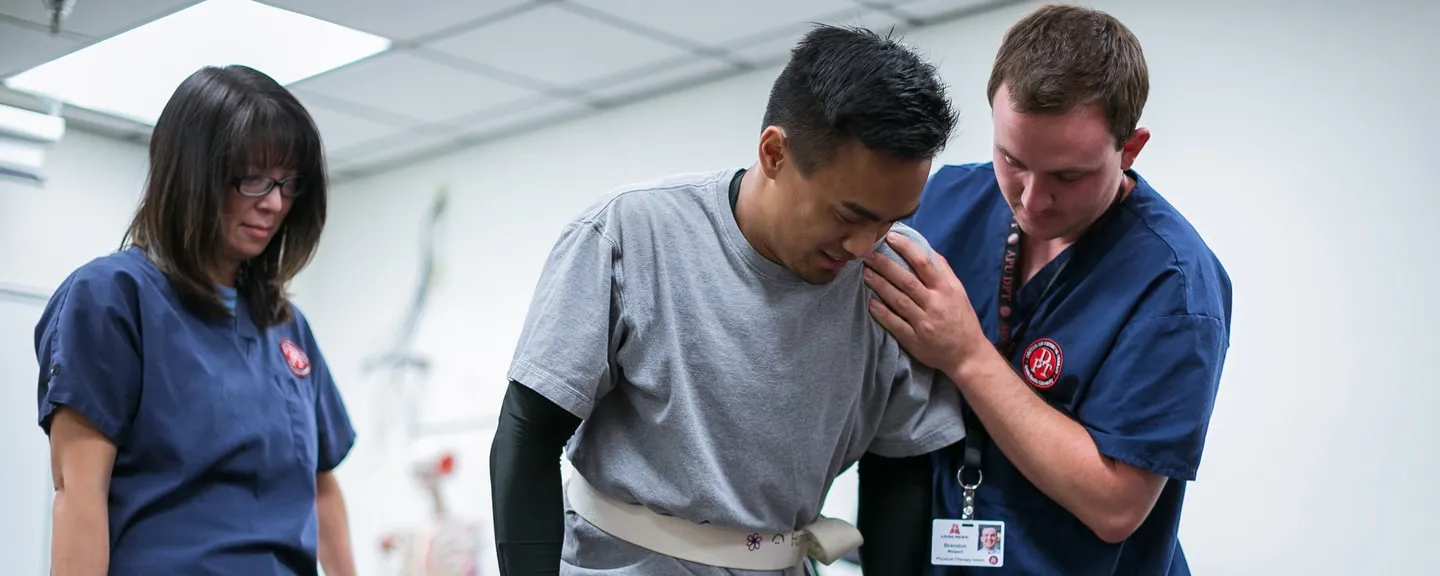- Home
- >
- APU Articles
- >
- News Article
Here’s What to Do with a Kinesiology Degree
December 13, 2018 | Written By Tobin Perry

Across the country, the number of degrees awarded in the discipline grew by 6.4 percent in 2016. Additionally, the average salary ($54,387) and the average number of people employed in the practice of kinesiology have increased significantly.
“The areas related to kinesiology are just exploding right now,” said Eric Sorenson, PhD, ATC, chair of the Department of Kinesiology at Azusa Pacific University. “It’s related to an increased need and interest in quality health care. That includes the full spectrum of prevention all the way to treatment. This is a trend we’re seeing nationwide; most careers in kinesiology are growing at a rapid pace.”
Here are a few of the career options you can access with a kinesiology degree.
Explore Health Care
According to Sorenson, the vast majority of students who enter the kinesiology program at APU are pursuing some kind of allied health profession. That includes physical therapy, occupational therapy, and athletic training. A growing number of students are also interested in becoming physician assistants and even nurses. Most of these professions require some kind of graduate-level degree. Sorenson noted that APU offers a doctorate in physical therapy, or a DPT, for those who want to continue on after completing their bachelor’s degree.
Pursue Physical Education
Students who want to go directly from earning their undergraduate kinesiology degree into the workforce can pursue an applied exercise program. These individuals can work in fitness, wellness, and strength and conditioning roles and typically do not need advanced degrees to get jobs after graduation.
Students can also pursue careers teaching physical education at the elementary or high school levels with the appropriate teaching credential. If this is your goal, you would complete your undergraduate kinesiology degree before starting a credentialing program. Sorenson explained that many APU students who want to become physical educators move into a dual credentialing and master’s program after graduation.
Find a Hands-On Career
Students who have a strong academic background—particularly in the sciences—tend to excel at kinesiology. According to Sorenson, the field is well-suited for students who enjoy applying what they learn in a hands-on manner. While you do need to understand the theoretical content in the kinesiology program, you’ll regularly be challenged to put what you’re studying into action, which enhances the learning experience.
APU in the Moment | Biomechanics Lab
In the last five years, the kinesiology programs at APU have grown from 150 people pursuing kinesiology-related degrees to a total of 415, reflecting the overall growing interest and opportunities in the field. Sorenson said employers know what to expect from candidates with a degree from Azusa Pacific, and that means graduates have career options for what to do with a kinesiology degree. “In addition to strong academic programs, when we talk to employers, they know that when they get an APU graduate, they’re getting someone who interacts with people well and is going to provide a different level of care,” he noted.